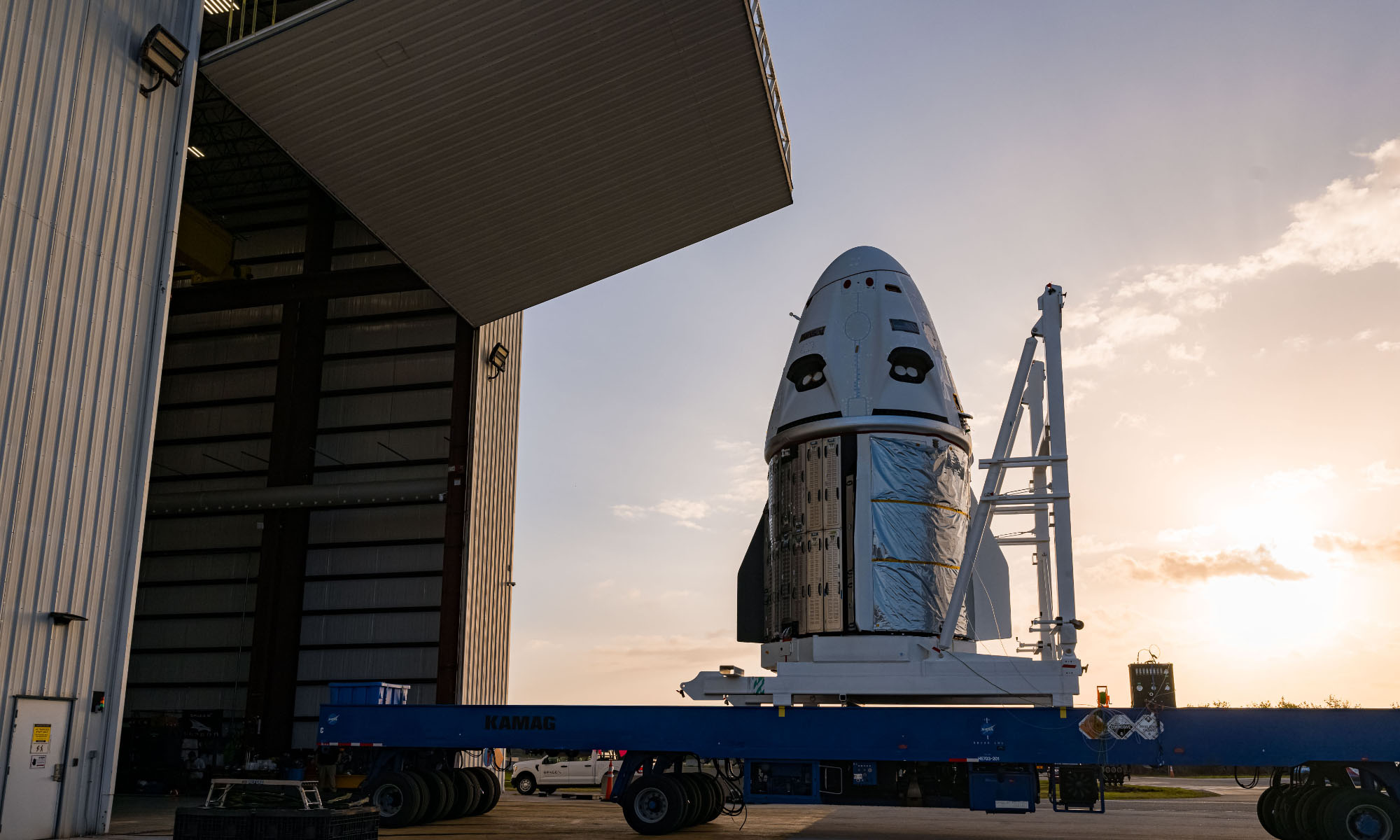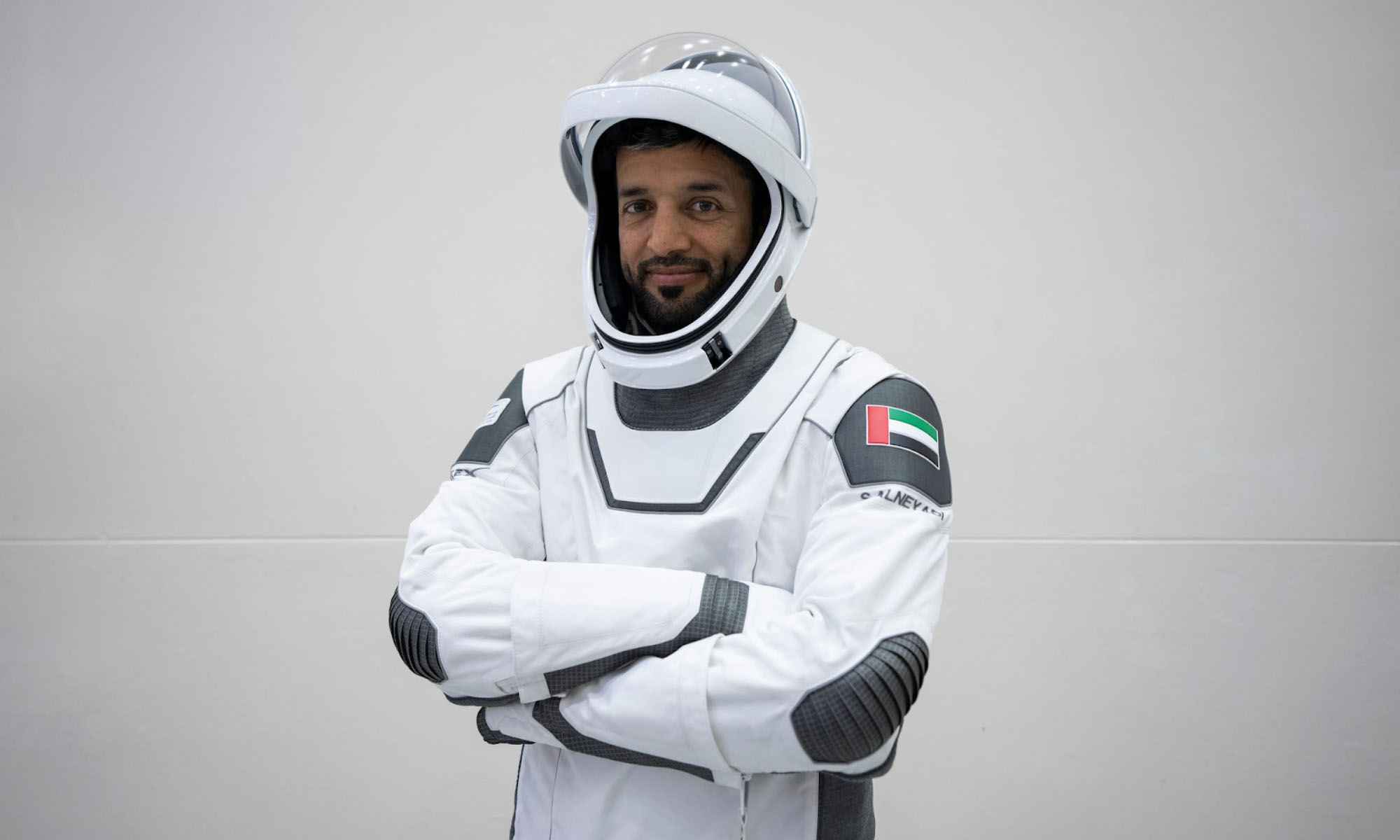News
SpaceX Dragon Spacecraft Prepares For February 27 Flight
Sultan Al-Neyadi from the United Arab Emirates will join Crew-6 astronauts to travel to the International Space Station for a six month mission.

The SpaceX Dragon astronaut shuttle Endeavour has been positioned at launch pad 39A of NASA’s Kennedy Space Center in Florida as engineers prepare for this weekend’s scheduled flight to the International Space Station (ISS).
Crew-6 Dragon arrives at LC-39A ahead of flight pic.twitter.com/QhAKqPFl6t
— SpaceX (@SpaceX) February 19, 2023
At 1:45 AM EDT (06:45 GMT) on February 27th, Endeavour will blast off atop a SpaceX Falcon 9 rocket to commence the Crew-6 mission. Crew-6 is a team of four astronauts who will travel to the International Space Station for around 6 months and is composed of Russian cosmonaut Andrey Fedyaev, US astronauts Stephen Bowen and Woody Hoburg from NASA, and UAE’s astronaut Sultan Al-Neyadi.

When Al-Neyadi’s trip to the ISS is complete, he’ll become the first Arab astronaut to complete an extended stay at the station, beating Hazzaa Ali Almansoori’s 2019 eight-day mission.
Also Read: Emirates Is Preparing To Build A $135 Million Pilot-Training Facility
Endeavour will dock with the ISS on the morning of February 29th. After that, another Dragon spacecraft will return to earth with outgoing NASA astronauts Josh Cassada and Nicole Mann, Japan’s Koichi Wakata, and Russia’s Anna Kikinapa.
The Crew-6 mission will be the Endeavour spacecraft’s fourth trip to the ISS. SpaceX’s first crewed trip took place in 2020, followed by Crew-2 in 2021 and Ax-1 in April 2022, the first privately crewed journey to the ISS.
News
Mamo Completes $3.4M Funding Round To Enhance Fintech Services
The startup will use the influx of cash to expand into Saudi Arabia and across the wider GCC while improving its product offering.

UAE-based fintech Mamo has announced the completion of a $3.4 million funding round that will help the startup extend its market presence and improve its product offering. Investors included 4DX Ventures, the Dubai Future District Fund and Cyfr Capital.
Mamo’s platform offers “payment collection, corporate cards and expense management” to help small and medium-sized businesses consolidate and streamline their operations. With the latest influx of capital, Mamo will further develop its comprehensive suite of services and begin testing its product lines in Saudi Arabia, further extending its footprint across the GCC.
Imad Gharazeddine, co-founder and CEO of Mamo, stated: “We’ve been in the market for a while now and are incredibly proud of what our team has achieved. The holistic and expansive nature of our product offering has helped us continue to grow sustainably. This additional funding will allow us to reach our medium-term goals even faster. The support from new and existing investors is a testament to our strong expertise and the ability to deliver on our customer promise”.
Daniel Marlo, General Partner of lead investor 4DX Ventures, added: “We have immense trust in Imad’s vision, leadership and Mamo’s innovative approach to provide a user-friendly and comprehensive financial solution for SMEs that makes financial management more accessible and efficient. We are proud to partner with them and support their mission”.
Also Read: A Guide To Digital Payment Methods In The Middle East
Amer Fatayer, Managing Director of Dubai Future District Fund’s investment team, also commented: “Mamo’s localized product lines serve as an infrastructure for SME payments and spend management in UAE, a segment that is underserved by the country’s current banking infrastructure. The team has taken a product-first approach to consolidating SMEs’ financial journeys and building a fintech solution deeply embedded in a business’s core operations”.
To date, Mamo has raised around $13 million in investment funding and now boasts a team of 30 people. The company’s intuitive financial services platform has allowed over 1,000 businesses to consolidate their financial operations and significantly reduce payment fees.
-

 News4 weeks ago
News4 weeks agoAmazon Prime Day 2024: Get Ready For 6 Days Of Amazing Deals
-

 News4 weeks ago
News4 weeks agoSamsung Unpacked 2024: What To Expect From The July 10 Event
-

 News4 weeks ago
News4 weeks agoCoursera Report Shows Surge In UAE Interest In AI Upskilling
-

 News4 weeks ago
News4 weeks agoMeet Dubai’s Groundbreaking Smart Robot Delivery Assistant













